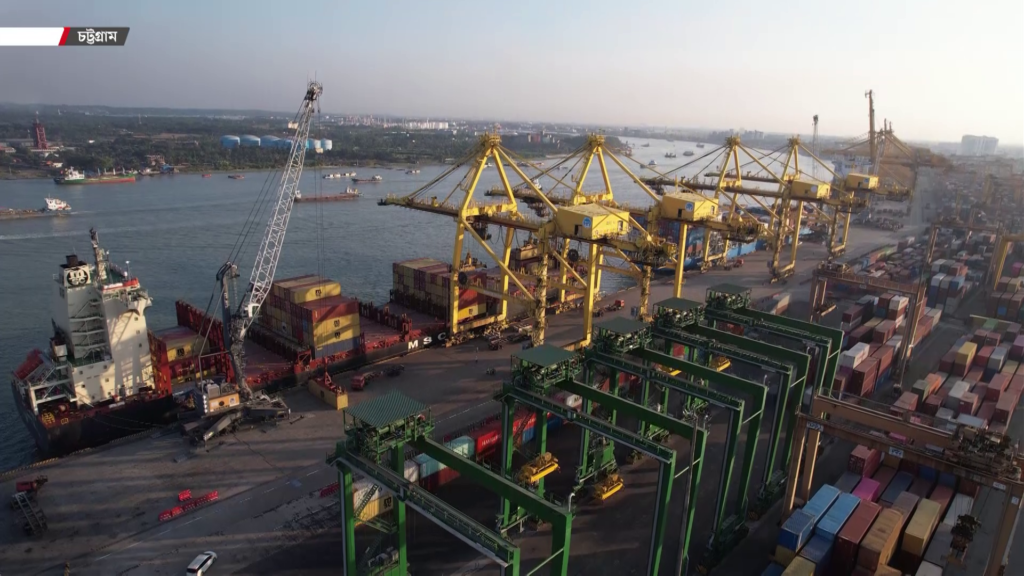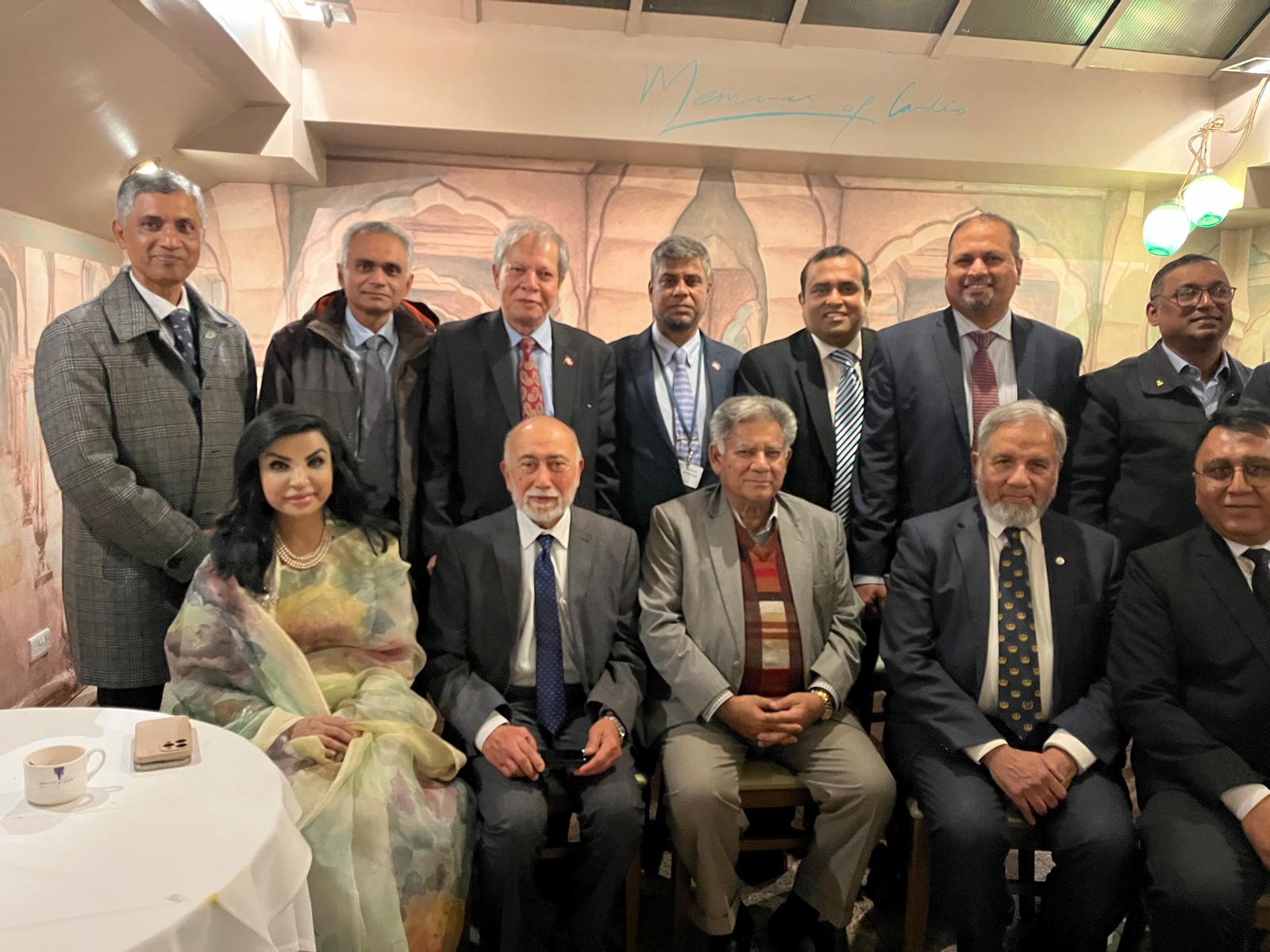search the site
How govt attempts to regulate lighter vessel syndicates hoarding goods faces legal roadblocks

While imported essential goods are transported from mother vessels anchored in deep-sea waters to ports or warehouses via lighter vessels, a group of unscrupulous traders exploit the system to manipulate the market.
They keep these vessels loaded with goods floating in the sea or rivers for days instead of delivering them, creating artificial shortages.
Once prices rise, they release the goods from the lighter vessels, reaping huge profits by taking extra money from the people’s pockets.
The government has long attempted to control the practice by enacting policies to set time limits on how long goods-laden lighter vessels can remain on the water. However, all efforts were in vain due to opposition from a section of lighter vessel owners and some importers.
In 2013, the Department of Shipping formulated a policy and established the Bangladesh Water Transport Coordination Cell to regulate the transportation process.
The cell was tasked with maintaining the sequence of lighter vessels transporting goods from mother vessels, allocating shipments, determining freight rates, and ensuring timely unloading within a specified period.
However, in 2021, a writ petition filed by the lighter vessel owners and importers made the policy ineffective.
After the interim government came to power on 5 August last year, a new policy was introduced. According to the new policy, after unloading goods from mother vessels, lighter vessels must unload and deliver them to ports or warehouses within two to seven days.
However, lighter vessel owners and some importers have turned to the court again to block it.
How these syndicates work
According to sources at the Chattogram port, more than 10 crore tonnes of goods are transported each year from mother vessels to lighter vessels at the outer anchorage of Chattogram port, distributed across 40 internal waterways. Over 1,400 lighter vessels are involved in transporting these goods.
According to Coordination Cell data and officials from the Department of Shipping, many of these vessels often remain idle with goods on the water for days to create an artificial market crisis. These practices intensify during Ramadan, when there is a heightened demand for certain essential goods.
The cell’s data from 15 January shows that 876 lighter vessels, after loading goods from mother vessels, remained idle at sea without unloading. These vessels were carrying sugar, pulses, edible oil, wheat, corn, and raw materials for various industries. Some of these vessels sat idle for 30 to 45 days with goods on board.
The legal battle: Govt’s policy and vessel owners’ opposition
Despite the government introducing the 2013 policy to regulate the transportation of goods via lighter vessels, some lighter vessel owners and importers have not complied with it in any way.
In 2021, the shipping ministry issued a gazette, making adherence to the policy mandatory. But the High Court, while disposing of a writ petition, suspended the effectiveness of the gazette. When the government appealed, the Appellate Division upheld the High Court’s order.
In October 2024, the interim government reintroduced the policy, along with the Coordination Cell, and made it mandatory. This time too, lighter vessel owners and importers challenged the policy in the High Court that ultimately led to a suspension of its implementation. The shipping ministry then appealed to the Appellate Division, which overturned the HC order.
Challenging the government’s decision, some 17 lighter vessel companies and importing firms, filed a writ petition with the High Court last November.
On 2 December, the HC bench of Justice Fatema Najib and Justice Shikdar Mahmudur Razi held a preliminary hearing on the petition and suspended the government-approved policy. At the same time, it issued a rule, asking why the policy should not be cancelled.
Subsequently, the Department of Shipping filed an appeal with the Appellate Division’s chamber judge’s court to suspend the High Court order. The Appellate Division temporarily stayed the order and forwarded the appeal for hearing by a full bench.
On 5 March, the Appellate Division resolved the appeal, upheld the chamber judge’s order, and directed that the High Court rule be settled within two weeks.
During the hearing, Attorney General Mohammad Asaduzzaman, representing the shipping ministry, told the court that because of the policy, the market has been freed from anarchy, monopoly, indiscipline, and vested interests.
The director general of the Department of Shipping, Commodore Mohammad Maksud Alam, told TBS that the new policy has been formulated to bring order to the trade and ensure fair competition.
Lighter vessels owners’ logic against the policy
The writ petition seeking the cancellation of this policy states that the new policy is an attempt to exert control over lighter vessels, rooted in the interests of a small syndicate. Its purpose was to secure financial gain for a few while stifling competition.
It also mentions that the Coordination Cell, at the heart of this “corrupt” operation, became notorious for its role in perpetuating this system, forcing private businesses to pay exorbitant fees and endure delays under the guise of discipline.
Petitioners’ lawyer barrister Mohammad Samiul Huq told TBS that the effectiveness of the policy now depends on the High Court.
However, if the High Court ruling is in favour or against the policy, the aggrieved party will have the option to appeal to the Appellate Division, according to the Attorney General’s office.
What Coordination Cell says
The Coordination Cell’s convener Saeed Ahmed told TBS that since the Appellate Division stayed the High Court ruling, the Cell has been working to regulate the lighter vessels, and this has been ongoing for almost a month.
He said the policy is primarily aimed at controlling lighter transport to ensure that goods are marketed in a transparent and orderly manner, and raw materials for factories can be supplied quickly.
He added that in January, around 900 lighter vessels were stuck at sea acting as floating warehouses, but this number has now decreased.
How the new policy works
Under the new policy, from now on, the associations of lighter vessel owners will operate under the Coordination Cell. It will act as the coordinator for the allocation of lighter vessels, working in collaboration with vessel owners, importers, exporters, product agents, local agents, and all other relevant parties.
A 10-member monitoring committee has been formed to oversee the activities of the Cell. The committee will be chaired by the director general of the Department of Shipping or their representative.
According to the policy, no lighter vessel will be allowed to transport goods from the mother vessel without the allocation from the Coordination Cell. However, under certain conditions, factories and groups of companies that have their own lighter vessels are permitted to transport goods using their own vessels, subject to an exemption letter from the department.
source : tbsnews


















